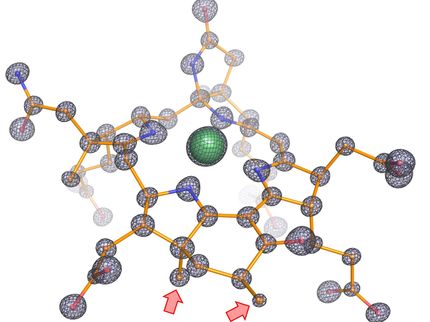Microbes may consume far more oil-spill waste than earlier thought
Study near Gulf of Mexico spill site finds surprisingly high methane uptake by microbes
microbes living at the bottom of the Gulf of Mexico may consume far more of the gaseous waste from the Deepwater Horizon oil spill than previously thought, according to research carried out within 100 miles of the spill site.
A paper on that research, conducted before the Deepwater Horizon rig exploded six months ago today, will appear in a forthcoming issue of the journal Deep-Sea Research II. It describes the anaerobic oxidation of methane, a key component of the Gulf oil spill, by microbes living in seafloor brine pools.
"Because of the ample oil and gas reserves under the Gulf of Mexico, slow seepage is a natural part of the ecosystem," says Peter R. Girguis, associate professor of organismic and evolutionary biology at Harvard University. "Entire communities have arisen on the seafloor that depend on these seeps. Our analysis shows that within these communities, some microbes consume methane 10 to 100 times faster than we've previously realized."
Girguis is quick to note that methane is just part of what spilled from the ruptured Deepwater Horizon well for three months earlier this year, and that the rate at which methane spewed from the damaged well far exceeds the flow that microbes would ordinarily encounter in the Gulf.
Key to the work by Girguis, Harvard research scientist Scott D. Wankel, and their colleagues was the ability to use on-site mass spectrometry to obtain direct, accurate measurements of seafloor methane. It's been difficult to make such measurements because most tools don't work accurately 5,000 to 7,000 feet below the surface, where pressures can reach roughly 220 atmospheres.
Using this new technique, the scientists were able to ascertain methane concentrations in brine pools surrounding gas seeps at the bottom of the Gulf -- which were extremely high -- as well as in the water column above the pools. Combining this data with measurements of microbial activity, they were able to extrapolate just how quickly the microbes were consuming the methane.
"In fact, we observed oxidation of methane by these microbes at the highest rates ever recorded in seawater," Girguis says.
Methane is a greenhouse gas, up to 60 times more potent than carbon dioxide. Gigatons of the volatile gas are produced in seafloor sediments, above and beyond that generated by gas seeps that pockmark the floor of the Gulf of Mexico and other bodies of water. But, Girguis says, somewhere between the seafloor and the sea's surface, much of the methane vanishes.
"We found that concentrations of methane in brine pools are tremendously high: five to six orders of magnitude higher than in the water column above," Girguis says. "Mass spectrometry has given us a window on both the amount of methane diffusing into the water column and how much of this methane is consumed through anaerobic oxidation by microbes within the brine pool. It appears the microbes consume much of the methane, and the rest dissipates over time into the water column."
A study published in the journal Science in August detailed a bacterial species reportedly able to degrade oil anaerobically in the Gulf. But a subsequent Science paper contended that these microbes mainly digested gases like methane, propane, ethane, and butane, not oil. The Deep-Sea Research II paper adds to scientists' growing understanding of these species' ability to degrade the byproducts of the Deepwater Horizon spill.
See the theme worlds for related content
Topic World Mass Spectrometry
Mass spectrometry enables us to detect and identify molecules and reveal their structure. Whether in chemistry, biochemistry or forensics - mass spectrometry opens up unexpected insights into the composition of our world. Immerse yourself in the fascinating world of mass spectrometry!

Topic World Mass Spectrometry
Mass spectrometry enables us to detect and identify molecules and reveal their structure. Whether in chemistry, biochemistry or forensics - mass spectrometry opens up unexpected insights into the composition of our world. Immerse yourself in the fascinating world of mass spectrometry!



























































